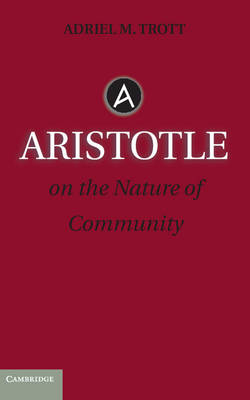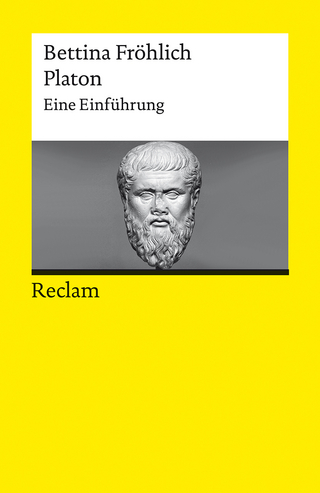
Aristotle on the Nature of Community
Cambridge University Press (Verlag)
978-1-107-03625-3 (ISBN)
This reading of Aristotle's Politics builds on the insight that the history of political philosophy is a series of configurations of nature and reason. Aristotle's conceptualization of nature is unique because it is not opposed to or subordinated to reason. Adriel M. Trott uses Aristotle's definition of nature as an internal source of movement to argue that he viewed community as something that arises from the activity that forms it rather than being a form imposed on individuals. Using these definitions, Trott develops readings of Aristotle's four arguments for the naturalness of the polis, interprets deliberation and the constitution in Politics as the form and final causes of the polis, and reconsiders Aristotle's treatment of slaves and women. Trott then argues that Aristotle is relevant for contemporary efforts to improve and encourage genuine democratic practices.
Adriel M. Trott is an Assistant Professor at Wabash College. She has published in Polis, Epochè, Parrhesia and the Journal for Speculative Philosophy. She has presented at the Society for Ancient Greek Philosophy, the Ancient Philosophy Society, the Hannah Arendt Circle, philoSophia, and the Society for Phenomenology and Existential Philosophy, in addition to many invited papers. She is a regular faculty member at the Collegium Phaenomenologicum in Città di Castello, Italy. She recently won a Faculty Excellence Award for Research, a grant from the Texas division of the National Endowment for the Humanities, and several Faculty Development Awards. Trott's background in politics – having worked on Capitol Hill and on several political campaigns before pursuing her academic career – continues to influence her philosophical work.
1. The internal principle of change interpretation of nature; 2. The four arguments for the naturalness of the polis; 3. Logos and the political nature of anthropos; 4. The natural rational human and the natural rational polis; 5. Deliberation and constitution; 6. Natural slaves and silent women: the case for political rule as deliberation.
| Verlagsort | Cambridge |
|---|---|
| Sprache | englisch |
| Maße | 158 x 235 mm |
| Gewicht | 490 g |
| Themenwelt | Geisteswissenschaften ► Philosophie ► Philosophie Altertum / Antike |
| Sozialwissenschaften | |
| ISBN-10 | 1-107-03625-9 / 1107036259 |
| ISBN-13 | 978-1-107-03625-3 / 9781107036253 |
| Zustand | Neuware |
| Haben Sie eine Frage zum Produkt? |


